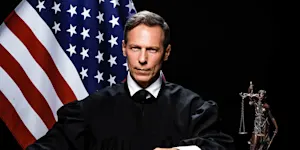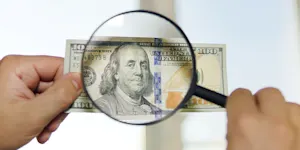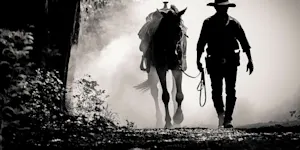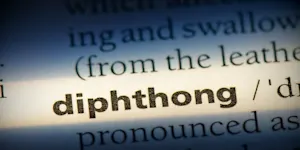What Makes This Word Tick
"Micawber" brings to mind a sense of hopeful anticipation in the face of financial misfortune, inspired by a character known for his unwavering optimism and belief that something good will turn up eventually. It's about maintaining a sunny disposition, even when the bank account says otherwise.
If Micawber Were a Person…
Imagine someone who always sees the glass not just half full, but brimming over — even if it's actually bone dry. This person might live paycheck to paycheck, yet they'll insist that wealth is just around the corner, and greet each new day with the buoyancy of a rubber duck.
How This Word Has Changed Over Time
Originally a name, "Micawber" has evolved into an adjective for someone cheerily expecting better financial times, regardless of harsh realities. From the world of Charles Dickens to modern parlance, its essence of optimistic anticipation remains ever applicable in everyday life.
Old Sayings and Proverbs That Use Micawber
Though direct proverbs are rare, many sayings capture the Micawber spirit: "Every cloud has a silver lining," or "Hope springs eternal in the human breast," both echo his eternal optimism.
Surprising Facts About Micawber
Mr. Micawber is a fictional creation from Charles Dickens' "David Copperfield," yet he's inspired real-life philosophical discussions on wealth and happiness. His character is said to be based on Dickens' own father, adding a layer of personal history to his rosy outlook.
Out and About With This Word
The word "Micawber" often pops up in discussions about financial planning, or lack thereof, and among those who believe in the power of positive thinking, despite mounting bills and dwindling savings.
Pop Culture Moments Where Micawber Was Used
Micawber-type characters appear in countless films and shows, anywhere there's a lovable dreamer defying the odds. They can be modern-day heroes for those battling financial woes with nothing but a smile and boundless hope.
The Word in Literature
In literature, you’ll find "Micawber" characters in novels about underdogs and dreamers navigating life's trials, conveying messages of hope and resilience, much like in “David Copperfield” itself where the original character first appeared.
Moments in History with Micawber
Think of the Great Depression — an era full of Micawbers finding hope amidst despair. Many persevered through optimism alone, mirroring Mr. Micawber's belief that better days "will turn up."
This Word Around the World
Globally, "Micawber" has its equivalents — from Japan’s gambaru spirit of perseverance to Brazil’s jeitinho brasileiro, finding a way despite tight circumstances. These reflect the universal idea that hope can sustain through hardship.
Where Does It Come From?
The term "Micawber" originated from a character in Charles Dickens' novel, "David Copperfield," published in 1850. His narrative of believing "something will turn up" resonated so well, it became a descriptor beyond its literary roots.
How People Misuse This Word
Some might mistakenly use "Micawber" simply to mean optimistic, forgetting its distinctly financial optimism and historical context, turning it slightly into a catch-all for any hopeful attitude.
Words It’s Often Confused With
Optimistic: While optimism is a trait of a Micawber, it lacks the financial implications.
Hopeful: More general than the financially tinged optimism of a Micawber.
Pollyanna: While somewhat similar, a Pollyanna is more naively upbeat, not specifically financially optimistic.
Additional Synonyms and Antonyms
Synonyms: dreamer, optimist, hopeful. Antonyms: realist, pessimist, cynic.
Want to Try It Out in a Sentence?
"Despite losing his job and facing mounting bills, Tom maintained a distinctly Micawber attitude, confident that something would turn up to change his fortunes."
















